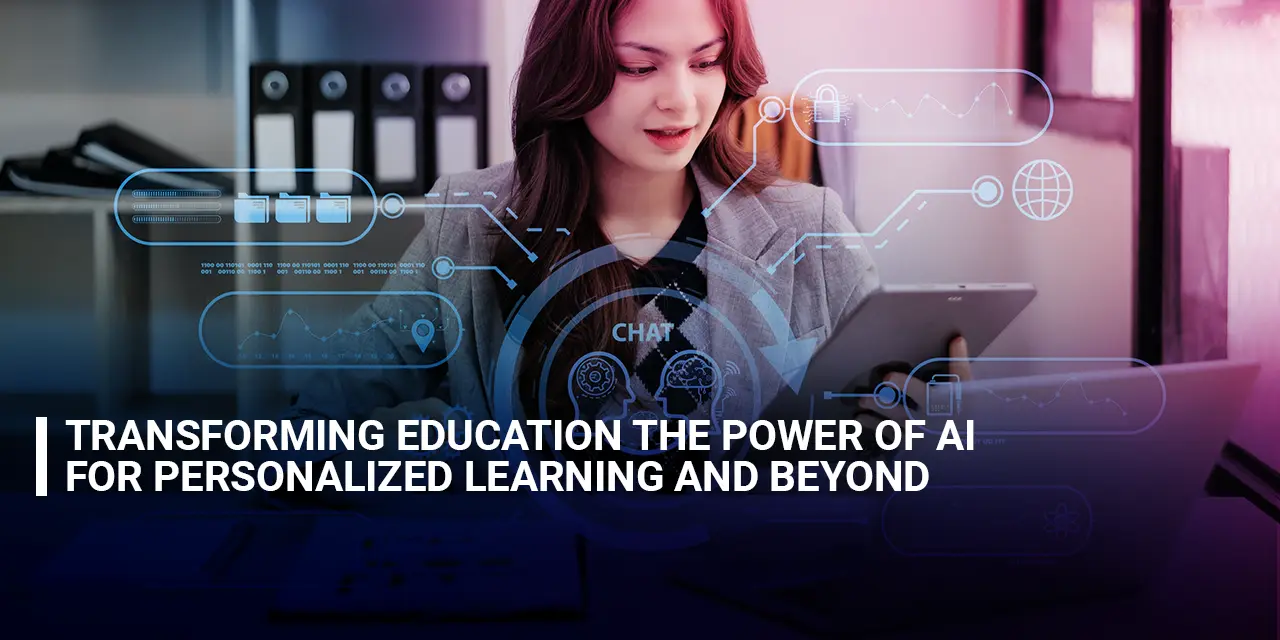Research
Share Knowledge
Brainstorm Ideas
1. Personalized Learning: Tailoring Education to Individual Needs
At the heart of AI's impact on education lies the concept of personalized learning. Gone are the days when a classroom of students moved through a curriculum at the same pace, regardless of their individual strengths, weaknesses, or learning styles. AI algorithms now enable educators to tailor learning experiences to the specific needs of each student.
Adaptive learning platforms use AI to analyse a student's performance, identifying areas of strength and weakness. This data-driven approach allows for the customization of learning materials and pacing, ensuring that students receive targeted support where they need it most. For instance, if a student excels in mathematics but struggles with reading comprehension, the AI system can adjust the curriculum to provide additional reading exercises while maintaining the appropriate level of challenge in mathematics.
2. Enhancing Teacher Effectiveness: AI as a Collaborative Partner
Contrary to concerns about AI replacing teachers, the integration of artificial intelligence in education is designed to enhance teacher effectiveness rather than diminish it. AI serves as a collaborative partner, handling routine administrative tasks, grading assignments, and providing valuable insights into student progress. This, in turn, allows teachers to focus more on personalized instruction, mentorship, and fostering critical thinking skills.
Moreover, AI can assist educators in identifying learning gaps and recommending targeted interventions. By leveraging AI-generated analytics, teachers gain valuable insights into student performance trends, enabling them to adapt their teaching strategies and better support individual learning needs.
3. The Role of AI in Lifelong Learning: Beyond the Classroom Walls
The impact of AI on education extends far beyond the traditional classroom setting. As we move towards a knowledge-based economy, the concept of lifelong learning becomes increasingly essential. AI-powered platforms are playing a crucial role in facilitating continuous education, allowing individuals to upskill or reskill throughout their careers.
These platforms leverage machine learning algorithms to understand individual learning preferences, recommend relevant courses, and adapt content to the evolving needs of each learner. This personalized approach to lifelong learning is a powerful tool in an era where the skills required for the workforce are constantly changing.
4. Overcoming Educational Inequalities: A Promise of Inclusive Learning
AI in education has the potential to address long-standing issues of educational inequality. By providing personalized learning experiences, AI can accommodate diverse learning styles, abilities, and backgrounds, ensuring that no student is left behind. This inclusivity extends to students with learning disabilities or those who require additional support, as AI can adapt content and provide targeted interventions to meet their unique needs.
However, it's crucial to address potential biases in AI algorithms to ensure that personalized learning remains truly equitable. Developers must be vigilant in mitigating algorithmic biases and considering diverse perspectives during the creation of AI-powered educational tools.
5. Challenges and Future Implications: A Balanced Perspective
While the promise of AI in education is vast, challenges such as data privacy, ethical considerations, and the digital divide must be acknowledged and addressed. Striking a balance between the benefits of personalized learning and the responsible use of AI is essential to ensure a positive and equitable educational future.
How Can We Help?
ITPN has leading-edge capabilities, top-class experts, and pioneering experience in this area. Please contact us if you have any questions or need assistance regarding our services.
Conclusion
In conclusion, AI is a transformative force in education, ushering in an era of personalized learning and beyond. By tailoring education to individual needs, enhancing teacher effectiveness, supporting lifelong learning, and addressing educational inequalities, AI is reshaping the educational landscape in unprecedented ways. As we navigate this evolving terrain, a thoughtful and collaborative approach to the integration of AI in education will undoubtedly pave the way for a more inclusive, effective, and dynamic learning experience for all.

